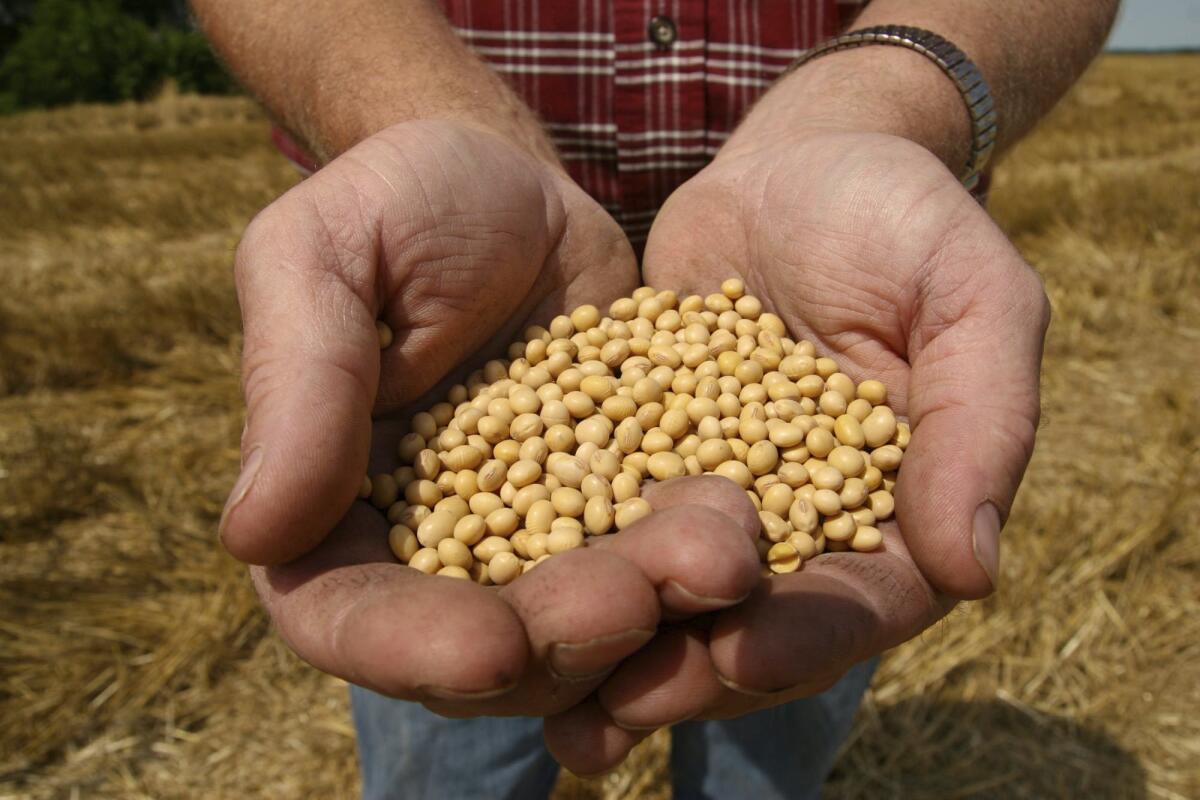Supreme Court rules in favor of Monsanto in seed-patenting case

- Share via
WASHINGTON — The Supreme Court gave a victory to Monsanto and other makers of patented seeds Monday, ruling they can prohibit farmers from growing a second crop from their genetically engineered seeds.
In a unanimous decision, the court said the patent for a specialized seed outlives the first planting. Otherwise, these seed patents would be “largely worthless,” said Justice Elena Kagan in explaining the decision.
Agri-business giants like Monsanto will be relieved by the ruling. They told the court they had spent huge sums of money and devoted years of effort to develop special seeds that can resist disease and grow more bountiful crops. The companies then obtained patents on these seeds, giving them an exclusive right to profit from them.
Industry lawyers said the system of innovation and profit was threatened by a bachelor farmer from Indiana who wanted to use the patented seeds without paying for them.
Vern Bowman admitted he liked Monsanto’s Roundup Ready seeds because they produce soybean plants that can tolerate weed killers sprayed on the field. Each year, Bowman bought the Monsanto seeds for his first crop of the season.
But later in the year, he turned to what the court described as a “less orthodox” approach for his second crop of the season. Rather than pay again the premium price for more Monsanto seeds, he purchased soybeans from a local grain elevator. This mixture, which came from nearby fields, contained soybeans that had been grown from Roundup Ready seeds.
After eight years, Monsanto learned of Bowman’s scheme and sued him for patent infringement. The company argued that Bowman was benefiting from its patented seeds without paying for them. A judge agreed with Monsanto and awarded the company $84,456 in damages.
To the surprise of the agri-business and bio-technology industries, the Supreme Court agreed to hear the farmer’s appeal in Bowman vs. Monsanto. The farmer and his lawyer cited the doctrine of “patent exhaustion” by which companies with some patents can benefit from only one sale.
If the high court had agreed, the decision could have upset the industries that depend on years of profit from their patented inventions.
But the justices decided the doctrine of “patent exhaustion” cannot be applied generally to products such as seeds, which reproduce themselves.
“Bowman planted Monsanto’s patented seeds solely to make and market replicas of them, thus depriving the company of the reward patent law provides from the sale of each article,” Kagan wrote. “Patent exhaustion provides no haven for that conduct.”
Follow Politics Now on Twitter and Facebook
More to Read
Get the L.A. Times Politics newsletter
Deeply reported insights into legislation, politics and policy from Sacramento, Washington and beyond. In your inbox twice per week.
You may occasionally receive promotional content from the Los Angeles Times.











